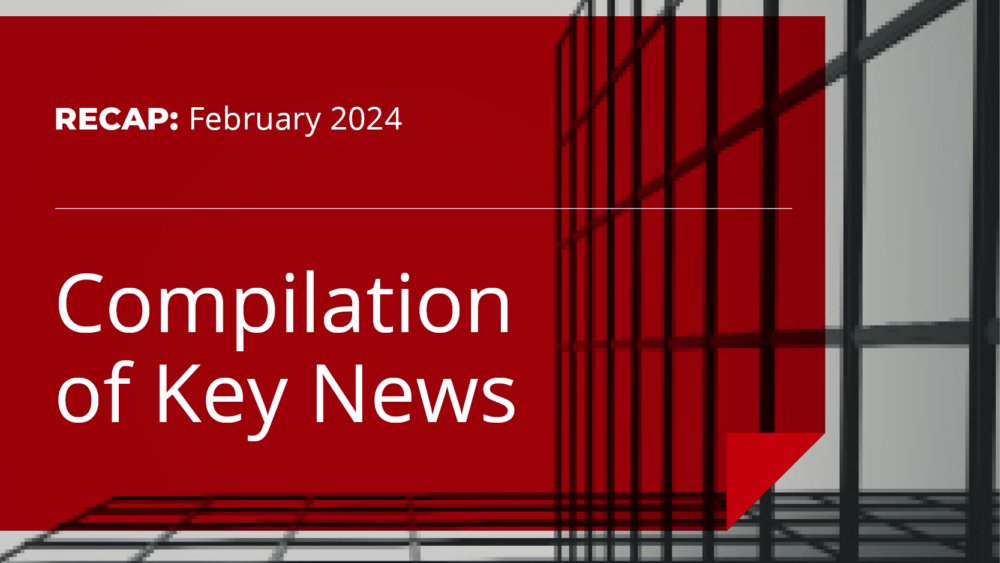From anticipated increase in wages to changes in the legal industry due to Generative AI, we bring you a collation of key updates for February 2024.
Surge continues for Australia’s law firms, says midyear market update
Australia currently lacks a specific regulatory framework for artificial intelligence (AI) use, relying on existing legislation such as consumer, data protection, competition, copyright, and anti-discrimination laws.
Although the government encourages the adoption of voluntary ethical frameworks like the AI Ethics Framework, concerns about expanding risks have prompted discussions about introducing targeted regulation and governance. In 2024, signs suggest the potential for AI-specific regulation, including proposed amendments to the Privacy Act, the launch of AI Month by the National AI Centre, and industry pressure for collaboration in managing the benefits and risks of AI. The Department of Industry, Science and Resources also released a discussion paper in June 2023, seeking industry feedback on the adequacy of Australia’s current regulatory frameworks for safe and responsible AI.
Generative AI in the legal industry: Set to change how the business works in future
Generative Artificial Intelligence (Gen AI) is already reshaping the legal industry, with both corporate legal departments and law firms incorporating AI technologies like ChatGPT and Microsoft’s Copilot.
A Thomson Reuters report reveals that 70% of legal professionals anticipate a transformative impact from AI within the next five years, bringing both hopes for efficiency gains and concerns about job displacement. While some consider Gen AI as optional, research suggests an imminent change in the industry, predicting widespread business model shifts within the next decade. As AI evolves to handle more complex tasks, the focus on non-billable work will diminish, prompting law firms to rethink billing models and share in efficiency savings as technology increasingly enhances legal processes.
Australia’s employers expect wages to grow faster than inflation in 2024, survey finds
According to the Australian Human Resources Institute’s March outlook report, workers can anticipate a 3.7% increase in wages by January 2025, up from the previously estimated 2.6% for October 2024.
The survey of over 600 responses suggests a resilient labour market in 2024, with 36% of organisations planning to expand their workforce and only 3% intending to reduce staff. Although recruitment challenges have eased to 38%, employers are still adopting strategies like raising prices and controlling costs to avoid redundancies, while 70% are implementing tactics to enhance job security. Hiring plans are strongest in the public sector, with 46% planning to increase staff.
Employer gender pay gaps published for the first time
The Albanese Government is addressing workplace gender equality by publishing gender pay gaps for nearly 5,000 Australian private sector employers. This transparency initiative follows last year’s Labor reforms and aims to accelerate progress in closing the gender pay gap.
The Workplace Gender Equality Agency reports that 30% of employers have a median gender pay gap within the target range of -5% to +5%, while 62% favour men with gaps over 5%. The publication highlights industry variations, emphasising the need for action to achieve gender parity, signalling a pivotal moment for gender equality in Australia.
Mortgage stress risk hits record high, but it’s not just because of rates
New research by Roy Morgan reveals that, following an interest rate increase in November, a record 1,609,000 Australian homeowners were “at risk” of mortgage stress in January, the highest in recorded history. This figure surpassed the previous record in August and September 2023, nearly doubling the pre-interest rate hike numbers in May 2022. Despite being lower than the financial crisis levels in 2008, the share of homeowners at risk was 31%, which is attributed to the larger mortgage market size today. The report emphasises unemployment as a significant factor influencing income and mortgage stress, with almost 19.3% of the workforce either unemployed or underemployed in January.
About Law Image: Law Image is a leading document management company. Founded in 1999 and headquartered in Melbourne, we have offices in Sydney, Brisbane, and Perth. Law Image supports law firms and government departments across Australia with end-to-end legal document management solutions.
For Marketing & Branding enquiries, contact:
Siddhi Chavan (communications@lawimage.com)
Marketing Specialist




Comments are closed.